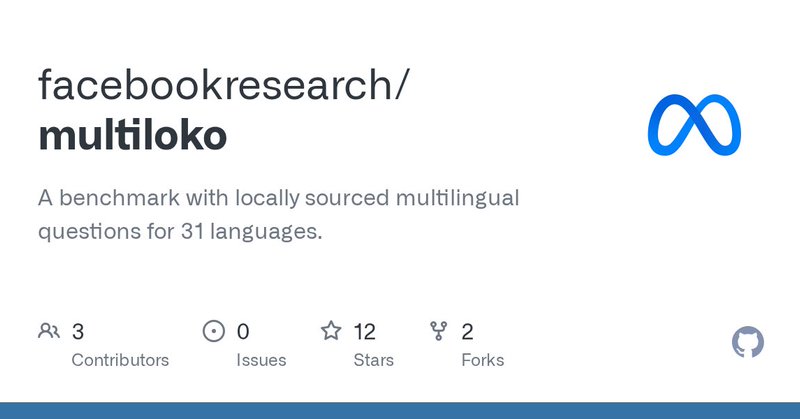
Dieuwke Hupkes
@_dieuwke_
Followers
2K
Following
1K
Media
85
Statuses
463
Joined September 2017
Many thanks for this big honour! 🤩.
Congratulations to the winners of the 2025 IJCAI–JAIR Prize for their paper “Compositionality Decomposed: How Do Neural Networks Generalise?” — Dieuwke Hupkes, Verna Dankers, Mathijs Mul, and Elia Bruni! .#IJCAI2025
2
0
25
RT @IJCAIconf: Congratulations to the winners of the 2025 IJCAI–JAIR Prize for their paper “Compositionality Decomposed: How Do Neural Netw….
0
4
0
RT @vernadankers: Proud to accept a 5y outstanding paper award @IJCAIconf 🏆 from JAIR for the impact Compositionality Decomposed has had,….
0
3
0
RT @WiAIR_podcast: 🧠 What does it really mean for an LLM to generalize? And are we even measuring it right?.In the latest #WiAIR episode, w….
0
1
0
Could not be more thrilled about this partnership, allowing us to keep MultiLoKo's test set truly hidden and have experts at Kaggle independently run the leaderboard 😍🔥💪.
Exciting collaboration! We've partnered with @AIatMeta's to launch the MultiLoKo Benchmark, now live on our platform. Measure model performance across 31 languages with truly private holdout sets – just like Kaggle Competitions, ensuring accurate results. Explore MultiLoKo and
0
1
9
Thrilled about the launch of this platform 🤩, the feature to host secret test sets is a deal breaker in the game against contamination and a gift to both benchmark builders and modellers 🔥🔥 Excited to be one of the first to use it for @AIatMeta's MultiLoKo's test set 💪!.
🚀 Kaggle Benchmarks is here! Get competition-grade rigor for AI model evaluation. Let Kaggle handle infrastructure while you focus on AI breakthroughs. View model performance on 70+ leaderboards, including @AIatMeta's MultiLoKo. Dive in:
0
1
6
RT @kaggle: 🚀 Kaggle Benchmarks is here! Get competition-grade rigor for AI model evaluation. Let Kaggle handle infrastructure while you f….
0
26
0
RT @WiAIR_podcast: How do we know if a language model really generalizes - or is just repeating patterns it’s memorized?.Let’s talk about c….
0
1
0
RT @ryan_nefdt: My new book on Linguistic Relativity (with Jeff Pelletier) just dropped with @OUPPhilosophy: We di….
academic.oup.com
Abstract. Does your language distinguish between dark and light blues? Do your verbs require a report on where and how you got your information? Can you ea
0
16
0
Want to know more? Have a look at our paper or our github repository:.- - Don't forget to check the related work section for other awesome work on multilingual evaluation for LLMs. @metaai.
github.com
A benchmark with locally sourced multilingual questions for 31 languages. - facebookresearch/multiloko
0
0
2
This pretty result confirms earlier results from a.o. Qi et. al ( @Jirui_Qi @AriannaBisazza @raquel_dmg ) and Ohmer et al ( @xenia_ohmer @eliabruni) that knowledge transfer between languages in LLMs is suboptimal.
direct.mit.edu
Abstract. The staggering pace with which the capabilities of large language models (LLMs) are increasing, as measured by a range of commonly used natural language understanding (NLU) benchmarks,...
1
0
1














